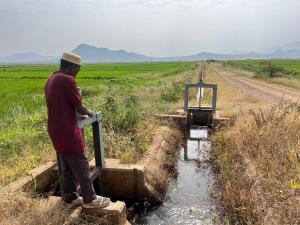Test project Heidi
In the spirit of life long learning
Testproject DM
Welcome to Daniel's testproject
Test project Pesticides and Protection Tanzania
testing out building a project
SfAA Panel: Beyond Environmental Injustice

Essay for the double-panel "Beyond Environmental Injustice", 81st Annual Meeting of the Society for Applied Anthropology, March 22-27, 2021.
Louisiana Environmental Action Network and the community members of Reserve LA/St John the Baptist Parish

A digital collection of material for field activities with LEAN and the community members of Reserve LA/St John the Baptist Parish.
Tanya Matthan: environmental justice and epistemic violence
tanyamatthanIn their introduction, Vermeylen's argument for a particularist and decolonial approach to justice through a recognition of plural ontologies and epistemologies that decenters Western liberal discourse and its theory of justice. How does bringing the lens of coloniality into environmental justice literature alter our visions of energy futures? Can we make appeals to environmental justice without recourse to liberal theories of individual rights and property ownership? More specifically, I am wondering how our team can study and address this dynamic plurality of ways of understanding and experiencing in/justice in this site, and how can we engage this plurality in productive ways? What axes of difference and inequality should we be looking for/at (race, gender, class, sexual orientation, citizenship, housing status, etc)? If the Anthropocene is coloniality by another name, how can we foreground this in our approach?
Tanya Matthan: BRT and envt justice
tanyamatthanThe authors productively place three bodies of theory in conversation, abolitionist theories, urban political ecology, and decolonial theory, to rewrite the intellectual trajectories of EJ as extending the legacy of the Black Radical Tradition. What are our intellectual and political genealogies as students and researchers of the quotidian anthropocene? What genealogies are we pushing against? Drawing from their examples of spaces and historical moments of interracial solidarity, what kinds of coalitions do we see ourselves partnering with and contributing to as (largely?) newcomers to the activism in Austin?



the rice irrigation scheme, Pare Valley, Tanzania